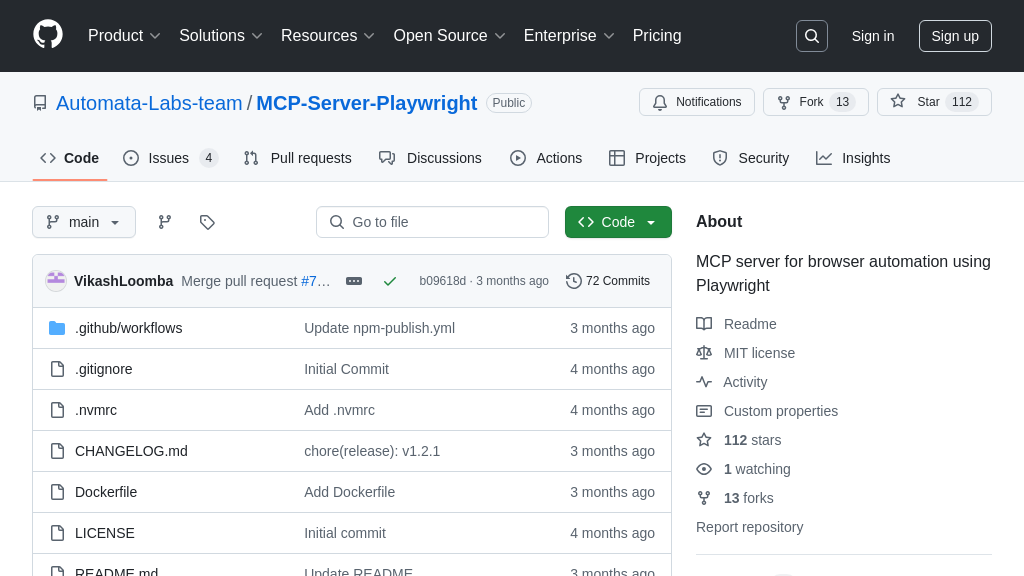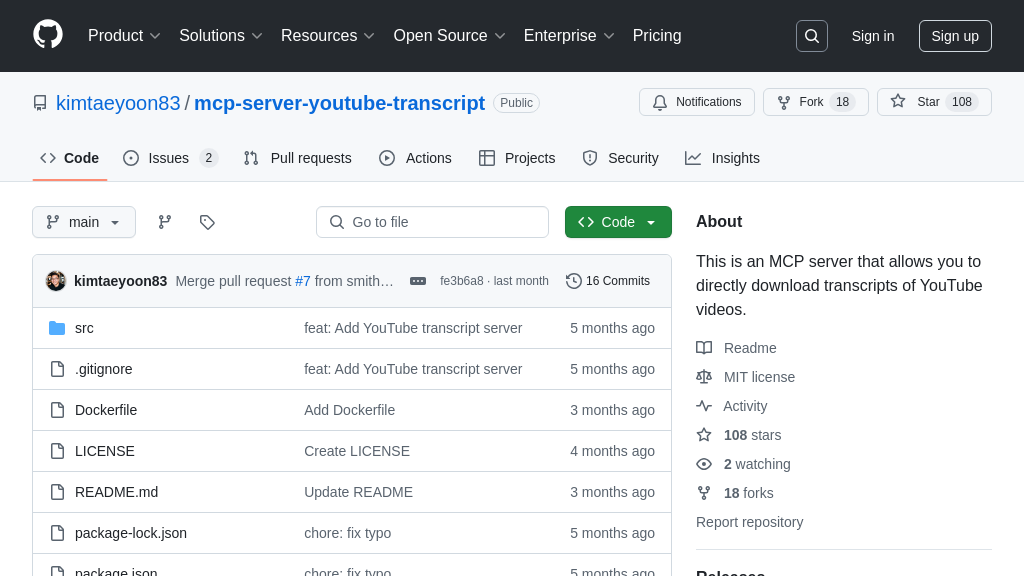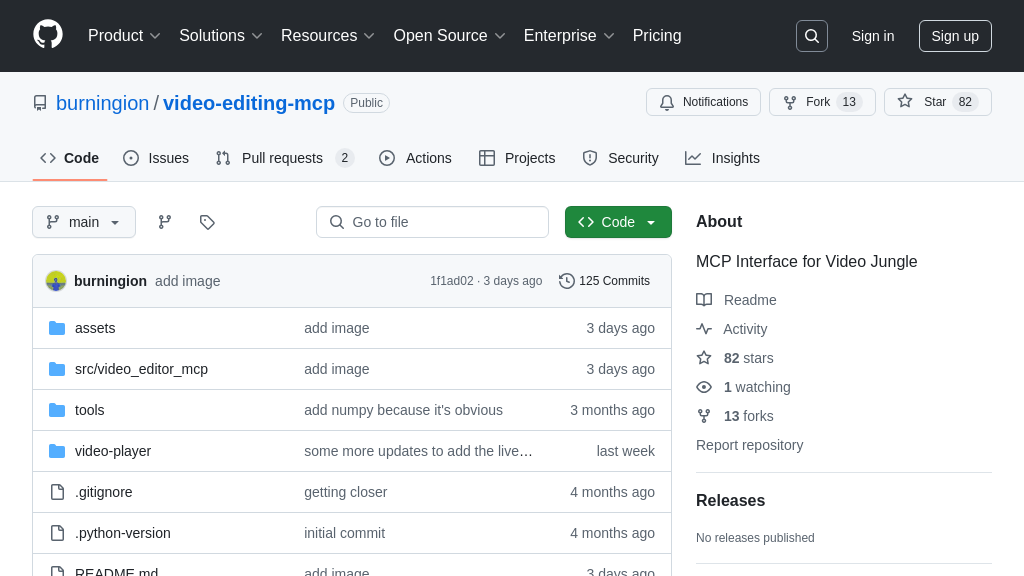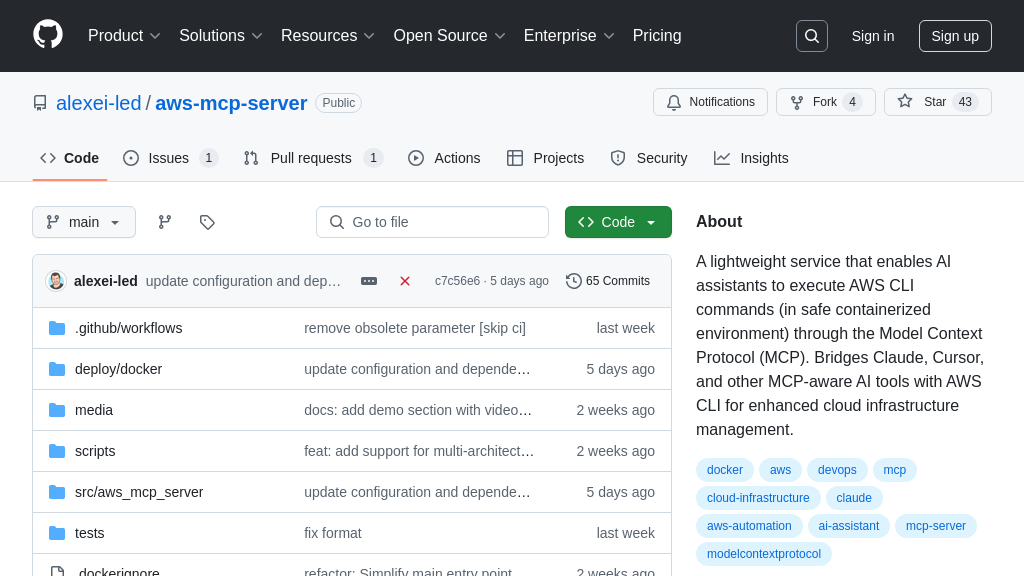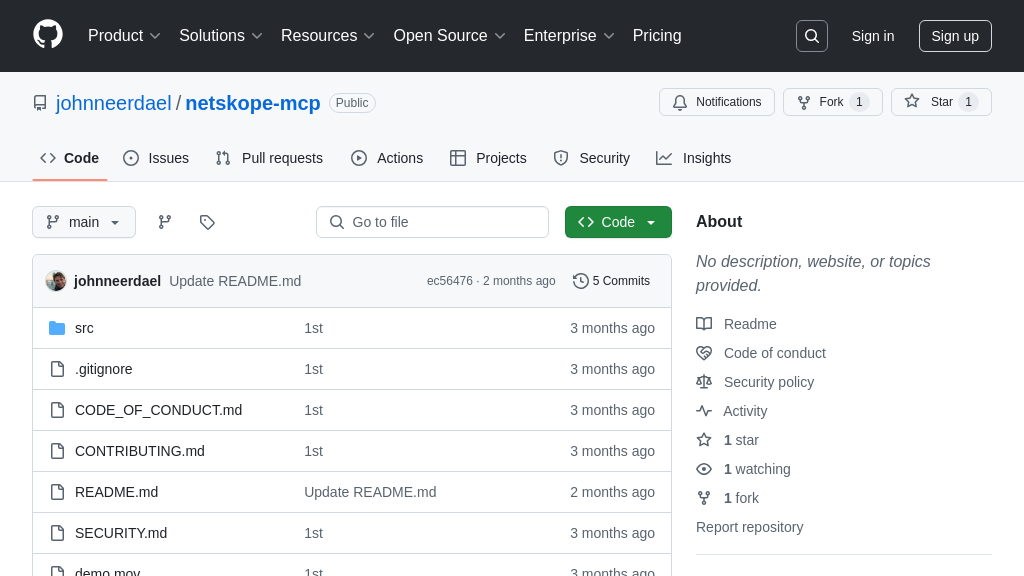mcp-server-duckdb
mcp-server-duckdb: MCP server for AI-powered DuckDB database interaction. Secure, local data analysis.
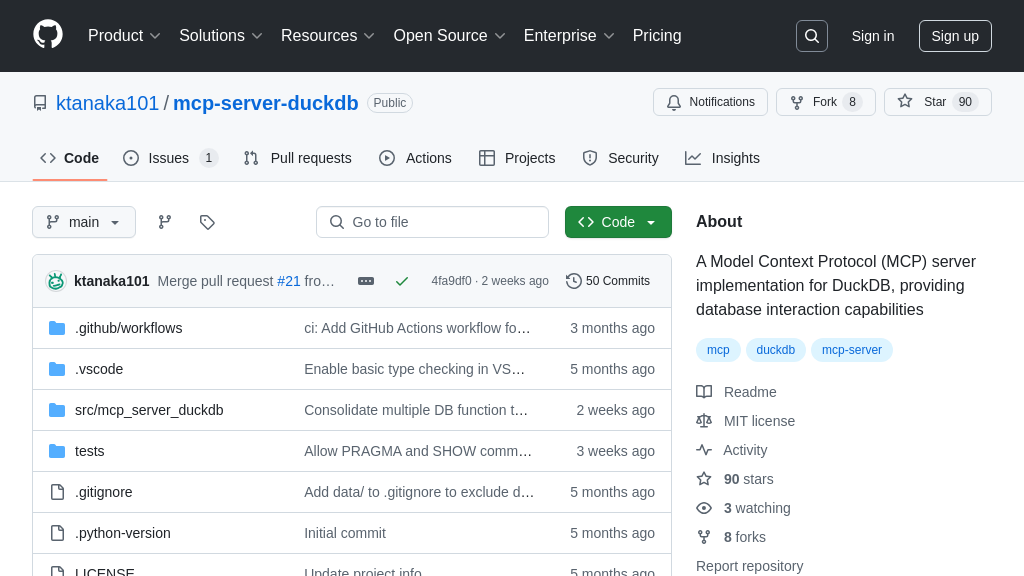
mcp-server-duckdb Solution Overview
mcp-server-duckdb is an MCP server that empowers AI models with local data analysis capabilities through DuckDB integration. It acts as a bridge, enabling AI to query, create tables, and inspect schemas within a DuckDB database. The server exposes a query tool, allowing AI models to execute any SQL query, from simple data retrieval to complex operations.
This solution addresses the developer need for secure and efficient data interaction. Running in read-only mode prevents unintended data modifications by the AI, ensuring data integrity. By providing a unified query function, it leverages the advanced SQL generation capabilities of modern LLMs.
The server seamlessly integrates with AI models through the MCP client-server architecture, using standard input/output for communication. Developers can easily install and configure the server, enhancing their AI applications with robust data analysis features. This unlocks powerful possibilities for AI-driven insights from local datasets.
mcp-server-duckdb Key Capabilities
SQL Query Execution
The core functionality of mcp-server-duckdb is its ability to execute arbitrary SQL queries against a DuckDB database. This is achieved through a single, unified query tool that accepts a SQL statement as input and returns the query results as text. This design choice leverages the capabilities of modern LLMs to generate appropriate SQL for various database operations, including SELECT, CREATE TABLE, JOIN, INSERT, UPDATE, and DELETE. The server acts as a bridge, translating the LLM's SQL requests into actions performed on the DuckDB database and relaying the results back to the LLM. This allows the AI model to interact with and manipulate data stored in DuckDB using natural language.
For example, an AI model could ask, "What are the names of all customers in California?". The mcp-server-duckdb would receive the SQL query SELECT name FROM customers WHERE state = 'California' from the LLM, execute it against the DuckDB database, and return the results (e.g., "John Doe\nJane Smith") to the AI model. The technical implementation involves using the DuckDB Python API to connect to the database and execute the provided SQL query. The results are then formatted as text for easy consumption by the LLM.
Read-Only Mode for Data Integrity
mcp-server-duckdb offers a read-only mode that significantly enhances data integrity and security. When enabled via the --readonly flag, the server opens the DuckDB database in read-only mode, preventing any write operations (CREATE, INSERT, UPDATE, DELETE). This ensures that the Language Model (LLM) cannot inadvertently or maliciously modify the database, safeguarding the data from unintended changes. This feature is particularly crucial in scenarios where the LLM is untrusted or prone to errors, as it provides a safety net against data corruption.
Consider a scenario where an LLM is used to analyze customer data but is still under development and prone to generating incorrect SQL. By running mcp-server-duckdb in read-only mode, developers can allow the LLM to explore and query the data without risking accidental modifications or deletions. The technical implementation leverages DuckDB's native read-only connection feature, ensuring that any attempt to execute a write operation will result in an error. If the database file does not exist in read-only mode, the server will fail to start, preventing accidental creation of an empty database.
Local Data Analysis with DuckDB
mcp-server-duckdb leverages DuckDB, an in-process analytical database, to provide efficient local data analysis capabilities. DuckDB is designed for fast query execution on structured data, making it ideal for scenarios where data needs to be analyzed quickly and locally without relying on external database servers. This allows AI models to perform complex data analysis tasks directly on the user's machine, improving performance and reducing latency. The server's integration with DuckDB enables AI models to access and analyze data stored in various formats, including CSV, Parquet, and JSON, using standard SQL queries.
For instance, a data scientist could use an AI model to analyze a large CSV file containing sales data. The mcp-server-duckdb would load the CSV file into a DuckDB database and allow the AI model to query the data using SQL to identify trends, calculate sales figures, and generate reports. The technical implementation involves using the DuckDB Python API to create an in-memory database and load data from various sources. The server then executes SQL queries against this in-memory database and returns the results to the AI model.
Simplified Database Interaction
Instead of requiring developers to create specialized functions for each database operation (e.g., separate endpoints for SELECT, CREATE TABLE, JOIN), mcp-server-duckdb provides a single, unified query tool. This simplifies the interaction between the AI model and the database, as the LLM can generate the appropriate SQL for any database operation without needing to call different endpoints. This approach reduces the complexity of the MCP server and makes it easier to integrate with AI models.
Imagine an AI model that needs to both query data and create new tables based on its analysis. With mcp-server-duckdb, the AI model can use the same query tool to execute both SELECT statements and CREATE TABLE statements, simplifying the interaction and reducing the need for complex logic on the AI model side. The technical implementation relies on the ability of modern LLMs to generate accurate and contextually appropriate SQL, allowing the server to function as a simple SQL execution engine.
Integration Advantages
mcp-server-duckdb offers seamless integration with the Model Context Protocol (MCP) ecosystem, allowing AI models to interact with DuckDB databases through a standardized interface. This integration simplifies the process of connecting AI models to data sources and enables developers to build powerful data-driven applications. The server's adherence to the MCP standard ensures that it can be easily integrated with other MCP-compatible tools and services, creating a flexible and extensible ecosystem for AI development.
For example, mcp-server-duckdb can be used in conjunction with other MCP servers to provide AI models with access to a variety of data sources and services. An AI model could use mcp-server-duckdb to query a local DuckDB database, then use another MCP server to access external APIs or cloud storage services, combining data from multiple sources to perform complex analysis and generate insights. The technical implementation involves adhering to the MCP specification for request/response communication and tool execution, ensuring interoperability with other MCP components.

